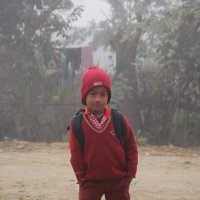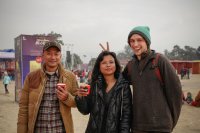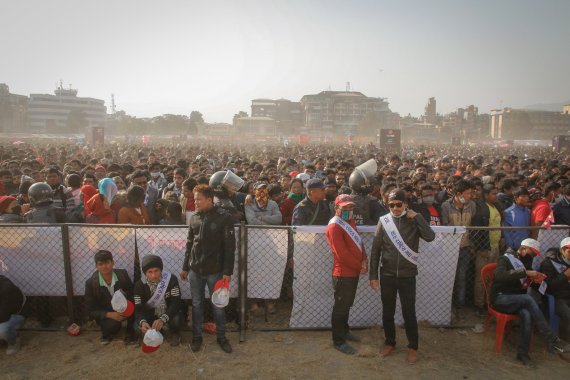The Tharus’ New Year festival in Kathmandu.
‘After years of studying, going to class and reading all the books and journals, I expected everything to be logical and coherent. But once I went to Nepal and talked to different people, I found that reality is very messy in a sense. As a researcher, it is tricky to navigate between those different perspectives, because they both make sense if you look at them in isolation. I found that hard to deal with.
I did an ethnographic study with qualitative data. I basically stuck around with all kinds of people and I did a few interviews each week. Nepal is an interesting case as it is one of the most rural countries in the world, but at the same time it is urbanizing at a rapid pace. In the capital Kathmandu there are loads of indigenous migrants who grew up in rural villages and who lack possibilities. I studied how indigenous cultures are expressed in an urban setting.

Rihanna
Two findings were most relevant. One is that policy papers from international organizations suggest that indigenous people have distinct needs and are specifically vulnerable to certain threats. This is only true to some extent. The young indigenous people are not as distinct as those organizations assume. Some of the young migrants I met liked to listen to Rihanna and to go to the mall and the cinema. Some of them were more interested in learning English than their indigenous language, because they wanted to be international and have a good job.
Secondly, I realized that indigenous people are not homogenous. There’s always the idea that for example the Tharu people, the fourth biggest ethnic group in Nepal, are all the same. But they are internally very diverse. There are a lot of internal conflicts or negotiations, for instance on how they have to celebrate their own New Year festival.

Critical reflection
My recommendation is to diversify the international policies. Instead of assuming homogeneity and distinct needs, we can be more open and say: okay we have one particular indigenous community, for instance living in an urban centre, what are their issues now, independently from the fact that they are indigenous? I think that would make policies more meaningful.
I also noticed that some organizations and activist networks that I talked to really tried to influence me. They had intense political debates and wanted me to think what they thought. At the university, we should have specific courses to teach students to be critical about how insights are being used by different people, and how research actually affects such people on the ground.’

